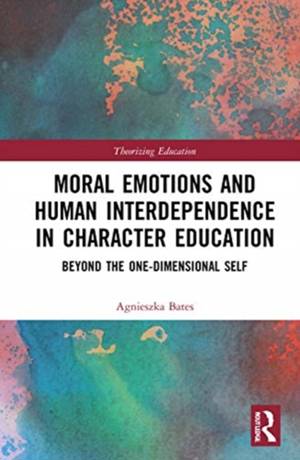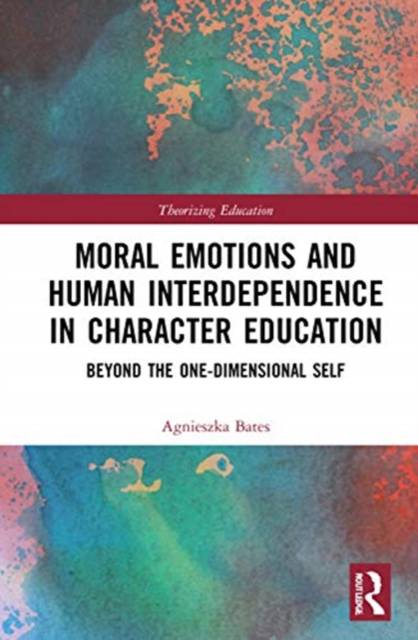
- Retrait gratuit dans votre magasin Club
- 7.000.000 titres dans notre catalogue
- Payer en toute sécurité
- Toujours un magasin près de chez vous
- Retrait gratuit dans votre magasin Club
- 7.000.0000 titres dans notre catalogue
- Payer en toute sécurité
- Toujours un magasin près de chez vous
Moral Emotions and Human Interdependence in Character Education
Beyond the One-Dimensional Self
Agnieszka BatesDescription
Moral Emotions and Human Interdependence in Character Education challenges contemporary mainstream approaches to character education predicated on individualism, 'essential virtues' and generic 'character skills'.
This book synthesizes perspectives from phenomenology, psychology, cultural sociology and policy studies into a unique theoretical framework to reveal how ideas from positive psychology, emotional intelligence and Aristotelian virtues have found their way into the classroom. The idealized, self-reliant, resilient, atomized individual at the core of current character education is rejected as one-dimensional. Instead this book argues for an alternative, more complex pedagogy of interdependence that promotes students' well-being by connecting them to the lives of others.
This book is an essential read for academics, researchers, postgraduate students and school teachers interested in character education and social and emotional learning.
Spécifications
Parties prenantes
- Auteur(s) :
- Editeur:
Contenu
- Nombre de pages :
- 204
- Langue:
- Anglais
- Collection :
Caractéristiques
- EAN:
- 9780367503307
- Date de parution :
- 24-05-21
- Format:
- Livre relié
- Format numérique:
- Genaaid
- Dimensions :
- 156 mm x 234 mm
- Poids :
- 485 g

Les avis
Nous publions uniquement les avis qui respectent les conditions requises. Consultez nos conditions pour les avis.






